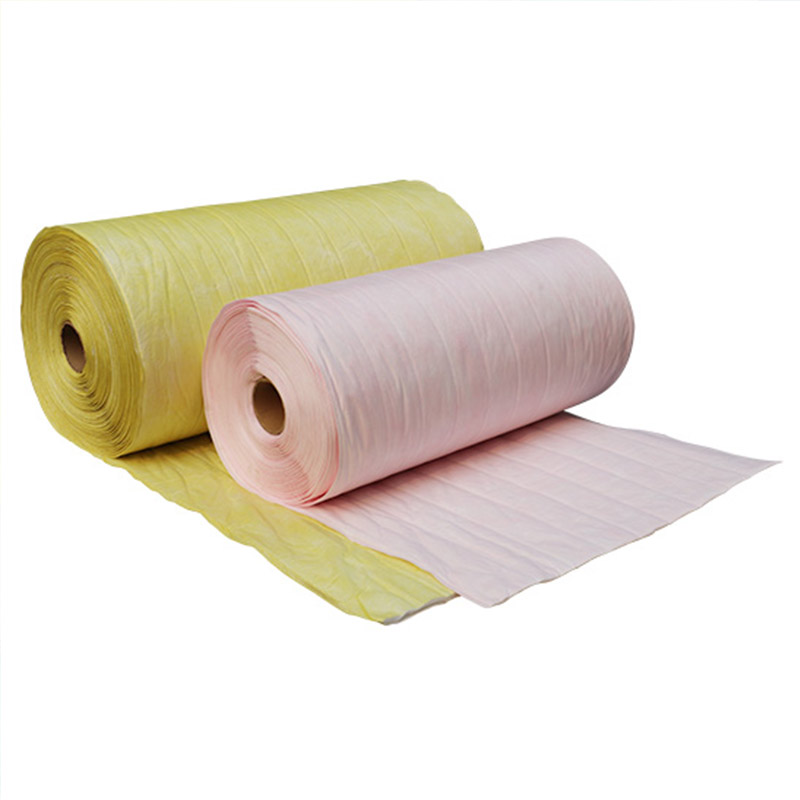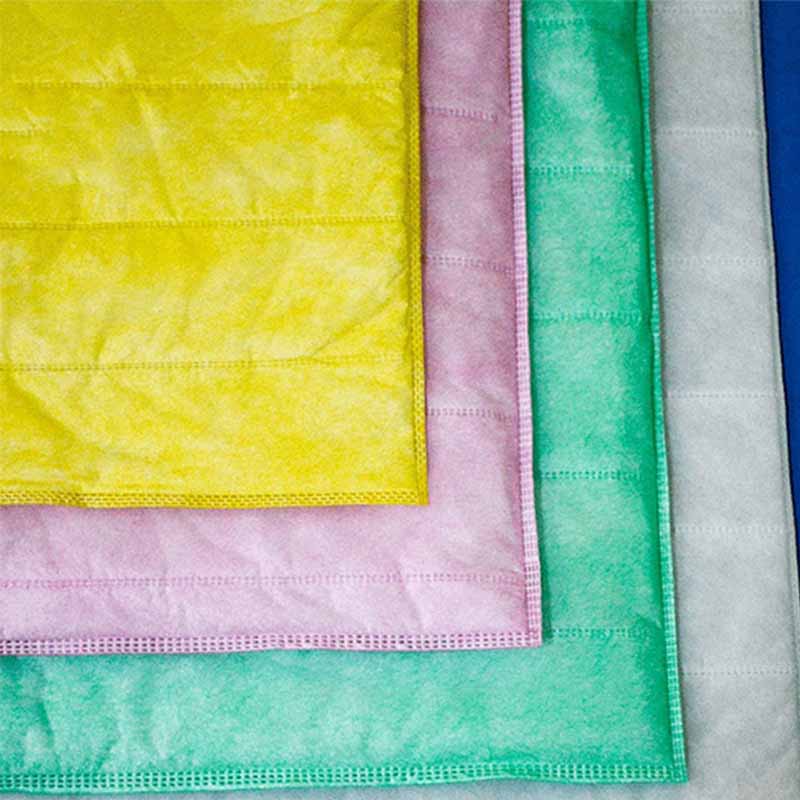 Non-Woven Cotton
Non-Woven Cotton
The bag filter material is made of polyester fiber non-woven fabric, melt blown non-woven fabric, and other materials by ultrasonic fusion. It uses multi-layer filter materials to achieve step-by-step filtration, making the air supply of the filter bag more uniform, with less resistance, and longer service life.
Product Features:
1. The product is non-toxic and environmentally friendly.
2. High welding degree, good sealing performance, and avoidance of air leakage.
3. The filter material adopts a ladder structure, which is more reasonable and improves the product life.
4. Low resistance, high efficiency, and easy identification of material appearance colors using unified identification.
Filter material characteristics: The non-woven air filter uses high-performance non-woven fabric as the filter material. This material is made through hot melt technology, non-toxic, harmless, and safer without pollution. Compared with some traditional fiberglass filter elements in air filters, non-woven fabric materials have better safety.
Electrostatic fiber enhanced filtration effect: Non-woven filter materials contain electrostatic fibers, which have good adsorption and filtration effects on submicron dust, thereby improving the filtration effect of the filter. This enables non-woven air filters to effectively capture and remove small particles in the air.
Economical and practical: Due to the relatively low manufacturing cost of non-woven materials, the price of non-woven air filters is usually more cost-effective. This makes it the preferred product for many manufacturers and consumers, especially in situations where large-scale use or frequent replacement of filters is required.
Portability: Non-woven air filters are usually lightweight, making them easy to install and carry in various environments. Whether in homes, offices, or industrial environments, non-woven air filters can be easily integrated into existing air purification systems.
Widely applicable: Non-woven air filters have been widely used in various fields, including but not limited to homes, offices, hospitals, schools, factories, etc. It can be used in central air conditioning systems, fresh air systems, and various air purification equipment to provide effective air filtration functions.
Product application examples
Medical & Hygiene Products: Widely used in surgical masks, wound dressings, and disposable medical gowns for its sterility and liquid absorption.
Agriculture: Serves as crop protection fabric, weed barriers, and seedling bags, allowing air/water permeability while preventing pests.
Home Textiles: Applied in mattress liners, pillow fillings, and furniture padding for its softness and thermal insulation.
Packaging: Eco-friendly alternative for gift wraps, shopping bags, and protective padding due to its durability and biodegradability.
Automotive Industry: Used in car interiors (headliners, trunk linings) for sound absorption and thermal regulation.
Fashion Accessories: Ideal for reusable shopping totes, hats, and shoe linings, combining sustainability with comfort.
Merchant FAQ
What is the minimum order quantity for the product?
The minimum order quantity is 500 pieces.
Do you arrange delivery?
Yes, our company can arrange delivery according to the customer's customer requirements.
Do you arrange delivery?
Yes, our company can arrange delivery according to the customer's customer requirements.
How to pay ?
Our company accepts multiple payment methods, such as T/T, L/C at sight.、
Environmental and Sustainability Information
Non-woven cotton is an eco-friendly material that has gained significant attention for its sustainable characteristics. Made from natural fibers like cotton or bio-based materials, it is biodegradable and renewable, reducing the environmental impact compared to synthetic alternatives. The production process of non-woven cotton is also more energy-efficient and generates less waste, contributing to lower carbon emissions and resource conservation. Additionally, its durability and long service life mean fewer replacements are needed, further minimizing waste. Many non-woven cotton products are certified by standards like OEKO-TEX®, ensuring they meet environmental and sustainability criteria. Efforts to develop recycling technologies and integrate renewable resources are ongoing, making non-woven cotton an increasingly sustainable choice. By choosing non-woven cotton, users can support sustainable practices while benefiting from its versatile applications in various industries.